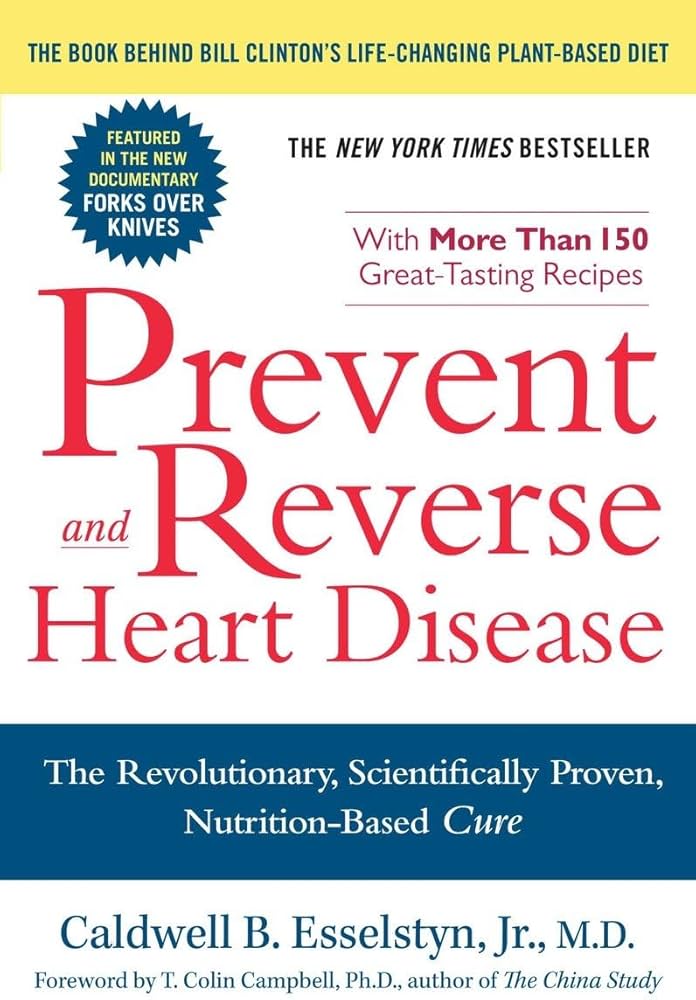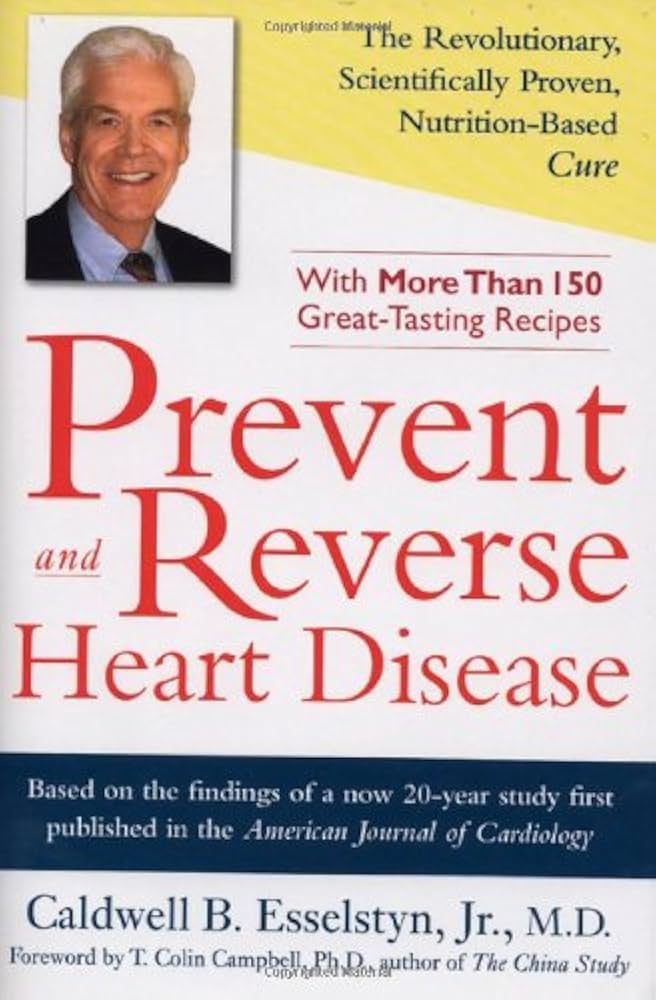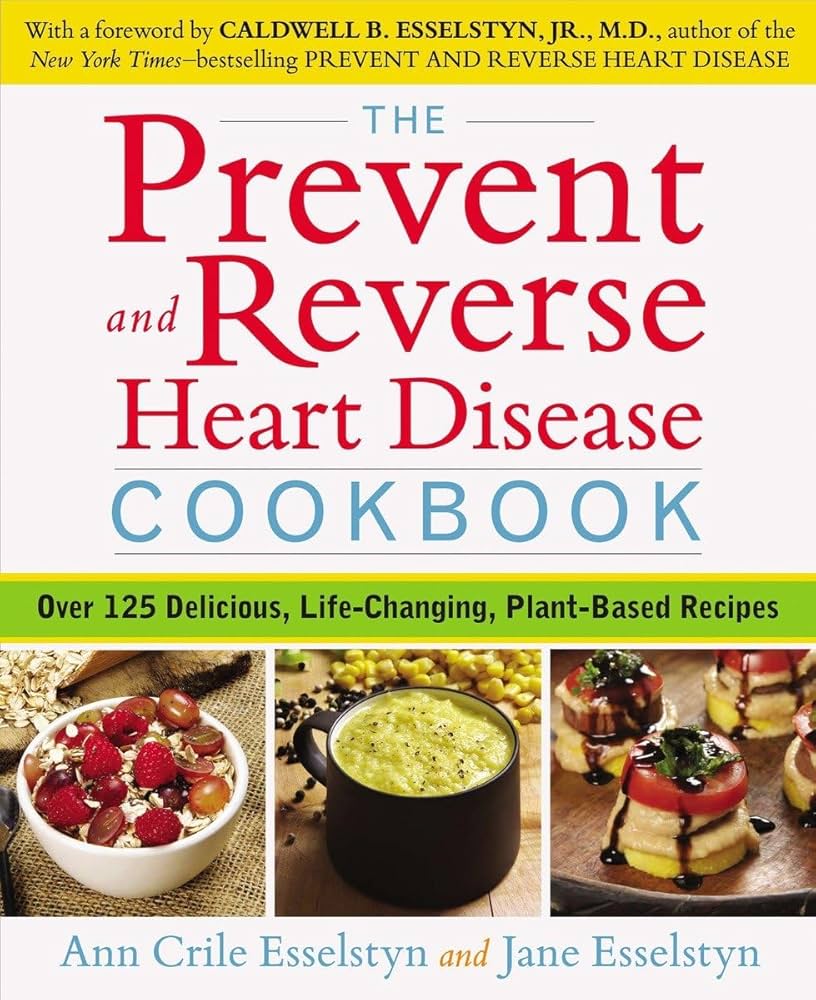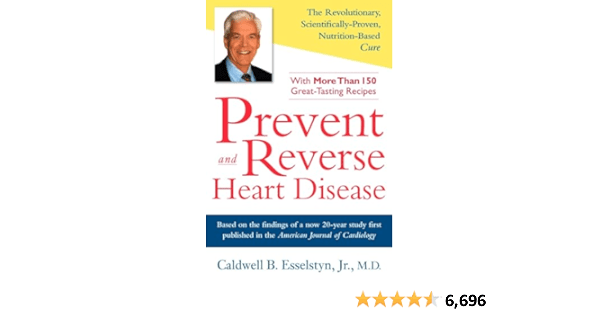What if you could take charge of your heart health and even reverse the course of heart disease? Wouldn’t that be an empowering thought? The “Prevent and Reverse Heart Disease” book has transformed lives by offering insights and practical advice aimed at helping you achieve just that. This comprehensive guide presents a wealth of knowledge on heart health, encouraging you to make changes that can lead to a longer, healthier life.
Understanding Heart Disease
Heart disease is not just one condition but a term that encompasses a range of conditions affecting the heart. You might have heard of coronary artery disease, heart attacks, and strokes, among others. Knowing the types of heart disease is crucial for understanding how to prevent and reverse it.
Types of Heart Disease
Here’s a brief overview of some common types of heart disease:
| Type of Heart Disease | Description |
|---|---|
| Coronary Artery Disease | Affects the arteries that supply blood to the heart. |
| Heart Failure | Occurs when the heart cannot pump enough blood to meet the body’s needs. |
| Arrhythmia | Irregular heartbeats that can lead to complications. |
| Valve Disease | Involves damage to heart valves, affecting blood flow. |
| Congenital Heart Defects | Structural heart abnormalities present at birth. |
Understanding these conditions can empower you to take proactive steps in your heart health journey.
Risk Factors for Heart Disease
Not all heart disease is unavoidable, and recognizing risk factors can help you alter the progression. Key risk factors include:
- High blood pressure: This can lead to other cardiovascular issues and doesn’t always reveal symptoms.
- High cholesterol: Elevated cholesterol levels can clog arteries.
- Smoking: Tobacco use is one of the most significant controllable risk factors.
- Diabetes: This condition increases the risk of heart disease due to potential blood vessel damage.
- Sedentary lifestyle: Lack of physical activity can contribute to weight gain and other risk factors.
By identifying these risk factors in your life, you can focus on changing habits and making healthier choices.
The Power of Prevention
Preventing heart disease is not just about avoiding the risks; it’s about adopting a healthier lifestyle. The “Prevent and Reverse Heart Disease” book emphasizes the importance of lifestyle changes that can keep your heart healthy.
Dietary Changes
What you eat plays a pivotal role in heart health. Here are some dietary tips inspired by the book:
- Incorporate whole foods: Fruits, vegetables, whole grains, and nuts should form the foundation of your diet.
- Reduce saturated fats: These fats can increase cholesterol levels, so opting for lean proteins is essential.
- Limit sodium intake: High sodium can lead to increased blood pressure.
- Avoid trans fats: These are often found in processed foods and can raise harmful cholesterol levels.
- Stay hydrated: Don’t forget to drink enough water throughout the day.
Exercise: A Heart’s Best Friend
Regular physical activity is indispensable for heart health. The recommended exercise for adults is at least 150 minutes of moderate-intensity aerobic activity each week. Engaging in activities like brisk walking, cycling, or swimming can drastically reduce your risk of heart disease.
- Find what you love: Whether it’s dancing, hiking, or yoga, finding joy in your physical activities will keep you engaged.
- Set realistic goals: Start small; perhaps 10 minutes of walking a day, then gradually increase your activity levels.
- Join a community: Being part of a fitness group can provide motivation and support.
Stress Management
Managing stress effectively is vital for heart health. Chronic stress can lead to high blood pressure and, over time, heart disease. Here are some friendly techniques you can try:
- Mindfulness meditation: Just a few minutes a day can cultivate a sense of calm.
- Deep breathing exercises: These can help in reducing tension and fostering relaxation.
- Seek support: Talking with friends or seeking professional help can provide a healthy outlet for your emotions.

This image is property of Amazon.com.
The Role of the “Prevent and Reverse Heart Disease” Book
The book provides all the necessary tools to help you manage your heart health. It’s filled with research, practical advice, testimonials, and recipes. Learning from this book can empower you to implement positive changes in your life.
Key Concepts from the Book
Each concept encourages a holistic approach to heart health, keeping you engaged and motivated. Here are some notable sections you might find particularly useful:
-
Understanding Heart Disease Mechanisms: The book delves into how heart disease develops, which can help you grasp the importance of preventative measures.
-
Meal Planning for Heart Health: The book offers various meal plans that emphasize whole, plant-based foods, making healthy eating accessible and enjoyable.
-
Exercise Routines: Discover tailored exercise plans for various levels of fitness.
-
Success Stories: Read about people just like you who have made successful changes and witnessed remarkable results.
Actionable Steps You Can Take
Here are some actionable steps based on the book that you can implement:
| Step | Action |
|---|---|
| Start a food journal | Track what you eat and how it makes you feel. |
| Set weekly goals | Commit to an exercise routine or meal prep plan. |
| Find an accountability partner | Partner with a friend or family member to stay motivated. |
| Get regular check-ups | Consult your healthcare provider for personalized advice. |
Taking small, consistent steps can lead to lasting changes, and the book serves as a great resource as you navigate this journey.
Heart-Healthy Recipes
What you eat can be an enjoyable adventure when you focus on heart-healthy recipes. The book provides numerous recipes that are not only delicious but also heart-friendly. Cooking wholesome meals can become a way to express creativity while nourishing your body.
Breakfast Ideas
- Overnight Oats: Combine rolled oats, almond milk, chia seeds, and your choice of fruits.
- Smoothies: Blend spinach, bananas, berries, and almond butter for a nutritious start to your day.
Lunch Options
- Quinoa Salad: Mix cooked quinoa with black beans, corn, diced tomatoes, and avocado for a filling meal.
- Veggie Wraps: Use whole wheat wraps filled with hummus, cucumber, spinach, and bell peppers.
Dinner Delights
- Baked Salmon: Rich in omega-3 fatty acids, serve with steamed broccoli and brown rice.
- Stir-Fried Tofu: Sauté tofu with mixed vegetables and a dash of low-sodium soy sauce.
Snack Ideas
- Nut Mix: Combine almonds, walnuts, and dried cranberries for a satisfying snack.
- Vegetable Sticks: Pair carrots, celery, and bell peppers with hummus for a crunchy treat.
By incorporating these recipes into your routine, you can nourish your body and enjoy the process.

This image is property of Amazon.com.
The Emotional Aspect of Heart Health
Decking yourself with knowledge about heart disease is vital, but it’s equally important to address emotional health. Chronic stress and negative emotions can impact heart health as much as physical factors.
Practicing Self-Compassion
Being kind to yourself during your health journey can foster resilience and perseverance. The book emphasizes self-compassion:
- Acknowledge your emotions: It’s okay to feel overwhelmed at times. Recognizing this can be the first step towards healing.
- Celebrate small victories: Every step you take towards better heart health deserves recognition.
Engage with Supportive Communities
Finding supportive communities, whether online or in-person, can make your journey less solitary. Many people find inspiration and camaraderie in groups that focus on health and wellness.
Professional Support
Sometimes, seeking professional help is necessary. Meeting with a dietitian, coach, or therapist can provide personalized guidance and emotional support.
The Science Behind Heart Health
Understanding the science behind heart health can make the information more compelling. The “Prevent and Reverse Heart Disease” book draws on extensive research and clinical studies that underline why the suggested lifestyle changes are effective.
Cardiovascular Health and Nutrition
Numerous studies indicate that a whole-food, plant-based diet can significantly lower cholesterol and blood pressure levels. The fiber and antioxidants present in fruits, vegetables, and whole grains are beneficial for heart health.
The Impact of Exercise
Regular physical activity has been associated with lower risks of heart disease due to its effects on cholesterol management, blood pressure control, and weight management. The book emphasizes incorporating exercise as part of an everyday routine to reap maximum benefits.
The Role of Mindfulness
Research on mindfulness shows its effectiveness in reducing stress and anxiety. Mindfulness practices can lead to lower blood pressure and improve overall heart health, proving that mental and emotional wellness is integral to physical health.

This image is property of Amazon.com.
Sustaining Healthy Changes
Making lasting changes can feel daunting, but the key lies in adopting a sustainable approach. The insights from “Prevent and Reverse Heart Disease” can help you create healthy habits that can stick over the long term.
Create a Routine
Building a routine around your meals and exercise can help make healthy choices automatic. Consider setting specific times for meals and workouts throughout the week.
Stay Informed
Keep reading, learning, and staying updated on heart health topics to remain motivated. Whether you follow the latest studies or connect with health communities, information can facilitate positive change.
Celebrate Progress, Not Perfection
Remember, it’s about progress rather than perfection. Celebrate your journey towards heart health, recognizing that every small change can cumulatively lead to significant improvements.
Conclusion
Could your life change for the better by making a few deliberate choices around your heart health? Absolutely! The “Prevent and Reverse Heart Disease” book provides a pathway to understanding and managing heart disease with kindness and patience toward yourself.
By taking actionable steps, embracing supportive communities, and nourishing your body with heart-healthy foods, you might find empowerment in the journey. Before you know it, these choices can transform your lifestyle, resulting in lasting impacts on your heart health and overall well-being.
So, are you ready to embark on this heart-healthy journey? Remember, the changes you make today can lead you to a healthier tomorrow.

This image is property of Amazon.com.